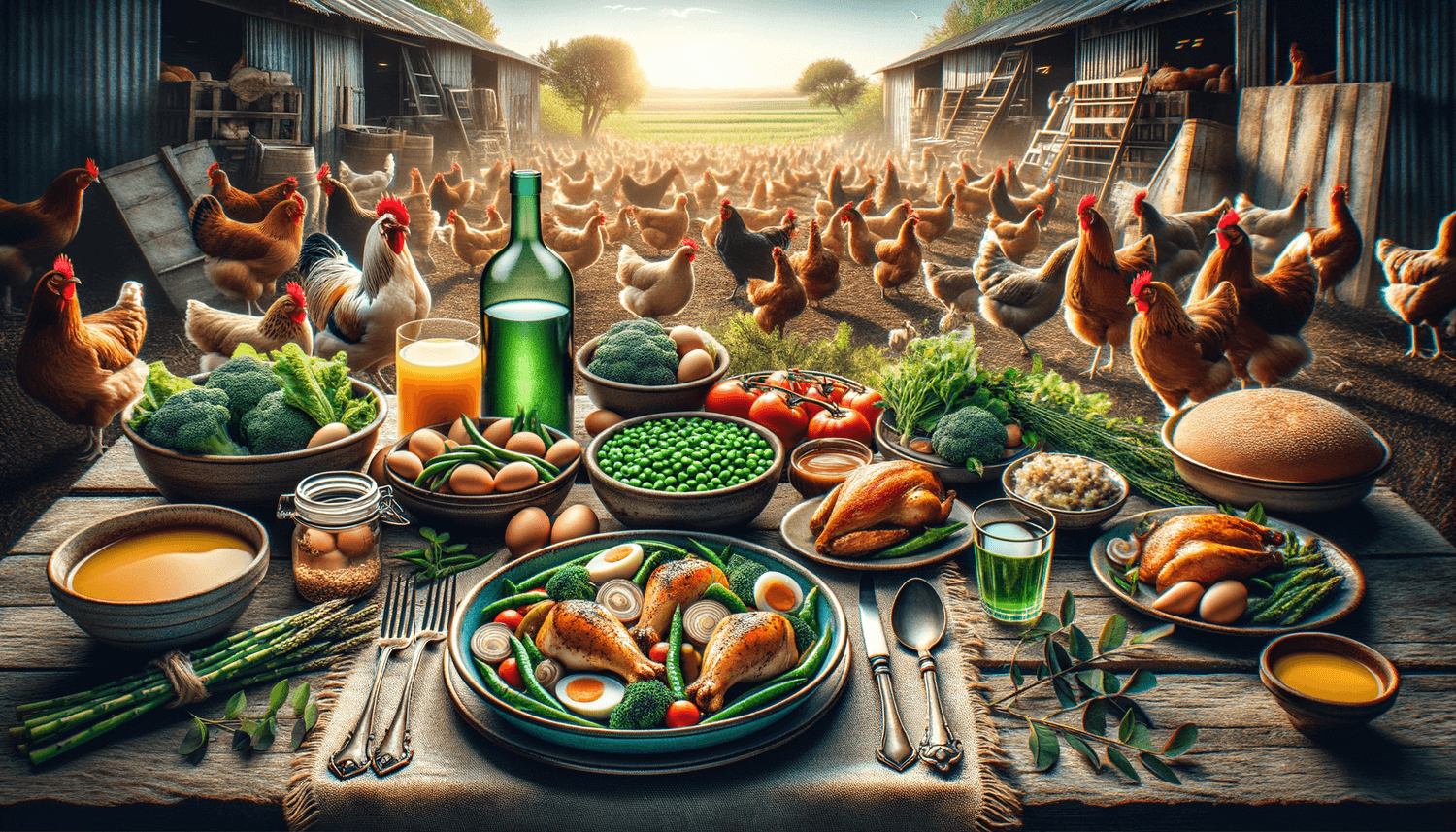Welcome to the coop, fellow chicken lovers! Today, we’re diving into a topic that might just ruffle a few feathers: can chickens eat chicken? As you scramble through this egg-citing post, you’ll discover whether our beloved feathered friends can safely peck at their own kind. In addition, we’ll hatch open the importance of a balanced diet, the benefits and/or risks of feeding chicken to chickens, the nutritional value that this peculiar food provides, and finally, how to prepare this dish for your hens (if it’s even possible!). So, buckle your chicken coop and let’s get clucky!
Can chickens eat chicken?
Yes, chickens can eat chicken, but it may not be the best option for their diet. While it is safe in terms of providing nutritional value, it’s crucial to ensure that the chicken meat is thoroughly cooked and free from any bones or seasoning. However, feeding chickens a diet comprised largely of their own kind can result in aggressive behavior like cannibalism, so it’s advisable to offer a more diverse range of options.
Chickens need a balanced diet too!
Just like us humans, chickens require a well-balanced diet to stay healthy and strong. A proper diet ensures that your backyard flock remains in tip-top shape, laying eggs consistently and maintaining vibrant feathers. To achieve this, it’s essential to know what should be included in their meals and what proportions work best.
A chicken’s diet should primarily consist of high-quality chicken feed, which should make up around 80-90% of their total dietary intake. Chicken feed is specifically formulated to cater to their nutritional requirements, such as providing them with the right amounts of protein, vitamins, and minerals. This ensures that your flock maintains proper growth, feather condition, and egg production.
Now, what about the treats? After all, variety is the spice of life! The remaining 10-20% of a chicken’s diet can consist of nutritious treats like fruits and vegetables. These supplementary items not only give them diversity in taste and texture, but they also help provide additional nutrients and keep your chickens both happy and healthy!
Nutritional value of chicken for chickens.
Feeding chicken to chickens does provide some nutritional value. Chicken, as a meat source, is naturally high in protein, which is essential for muscle growth and repair. In fact, chickens require a significant amount of protein in their diet for sufficient egg production and feather development. Therefore, feeding cooked chicken meat without bones may contribute to meeting their protein requirements.
Apart from protein, chicken meat also contains various essential vitamins and minerals. Chickens can gain benefits from the vitamins A, B, and E that are present in the chicken meat, which support their immune system, metabolism, and overall health. Minerals such as zinc and iron are also found in chicken, and when ingested by hens, can contribute to bodily processes like oxygen transportation and enzyme function.
However, it is important to note that while feeding chicken meat to chickens might provide some nutritional benefits, other sources of protein and nutrients can and should be considered. This is because feeding chicken to chickens has inherent risks, like potentially encouraging cannibalism, as mentioned before. Therefore, it’s worth exploring alternative protein sources such as insects, mealworms, and other animal-based proteins that are safer and more appropriate options for chickens.
Nutrition table of chicken for chickens.
| Information | Description |
|---|---|
| Nutritional Value | High in protein, vitamins, including A, B and E, and minerals such as zinc and iron. |
| Suggested Serving Size | Small, occasional portions, accounting for a minimal part of their diet. |
| Safe Feeding Practices | Thoroughly cooked, boneless, and unseasoned chicken meat. |
| Preparation | Cook chicken completely, remove bones and excess fat, and ensure no seasonings are present. |
| Potential Risks | Possible aggressive behavior and cannibalism among the flock. |
| Hydration | Chicken meat doesn’t provide significant hydration; always provide fresh water for chickens. |
| Digestion | Chicken meat is relatively easy to digest for chickens, but it’s essential to remove bones to avoid obstructions. |
| Seasonal Availability | Chicken meat is available year-round, but consider safer alternatives as part of a balanced diet. |
| Other Benefits | Though nutritionally dense, it’s important to weigh the benefits against the risks in terms of flock dynamics and safety. |
Alternative Protein Sources for Chickens
Since chicken meat, while nutritionally valuable in some aspects, comes with potential risks when fed to chickens, it’s important to discover safer alternatives. A variety of other protein sources can meet your chickens’ nutritional requirements without inciting aggressive behaviors or exposing them to potential hazards. Some great protein sources for chickens include:
Remember that these protein-rich treats should account for a smaller portion of their overall diet, as the bulk should still consist of high-quality chicken feed.
Safe Treats for Chickens
For the remaining 10-20% of your chickens’ diet, a wide array of suitable fruits and vegetables can make perfect treats that also provide essential vitamins and minerals. Offer your chickens variety with the following safe options:
Avoid giving your chickens processed foods, high sugar fruits, or plants within the nightshade family (e.g., raw potatoes).
While chickens can technically consume cooked chicken meat, it’s essential to closely evaluate whether or not it’s the best choice for your flock. Weighing the nutritional benefits against potential risks is a key step in ensuring your backyard chickens stay healthy, happy, and harmonious. Don’t forget that a balanced diet, primarily based on high-quality chicken feed and supplemented with safer alternative protein sources, fruits, and vegetables, should be the mainstay of their feeding regimen.

















